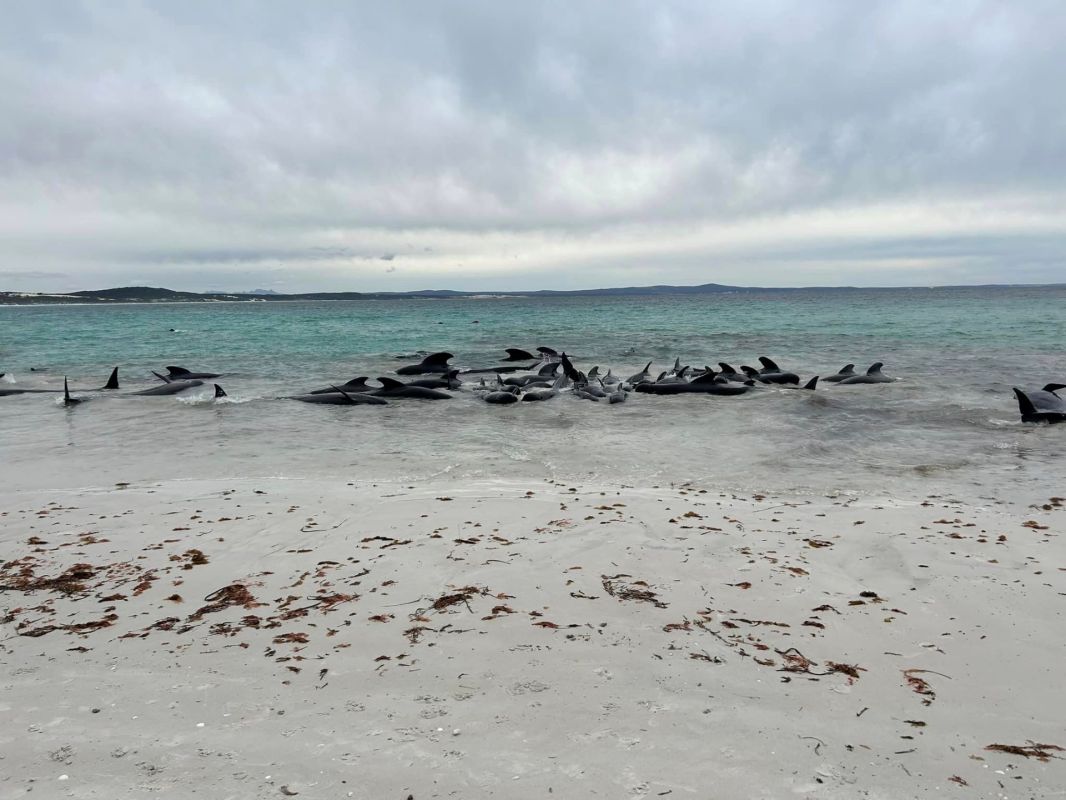After becoming stranded for the second time in a week, a pod of beached pilot whales in Western Australia had to be euthanized.
What happened?
On July 25, a pod of more than 90 pilot whales was spotted off the shore of Cheynes Beach in Western Australia. The pilot whales, which are actually one of the largest members of the dolphin species, became stranded on the beach a few hours after they were spotted.
A rescue team from the Parks and Wildlife Service responded immediately, attempting to herd the whales back into the ocean. By the next morning, 51 whales had already died; many overheated, while others' organs were crushed beneath their own weight.
Officials and volunteers remained on the beach in hopes of rescuing the remaining whales. Incident Controller Peter Hartley told CBS News, "We're just going to try to gently herd them out of the bay … We've got to be optimistic in this game."
The whales were briefly returned to the water before becoming re-stranded further along the beach. After assessing the health of the whales, officials from the Parks and Wildlife Service decided to euthanize the remaining whales to spare them pain.
The decision was a last resort, officials said. After final attempts to lead the whales back into the water failed, marine biologists and experts agreed the whales would likely die. "Once they come back, that's probably a sign you're not going to be able to save them," Andrew Read, a professor of marine biology at Duke University, told USA Today.
Should we be worried about whale strandings?
Though whale strandings have been making headlines recently, most experts agree that there is no evidence suggesting they are occurring more frequently.
"They're not necessarily becoming more frequent, but maybe we're more aware of when they occur," Randall Davis, a marine biologist at Texas A&M University, told USA Today.
The puzzling truth is that experts aren't sure why whales beach themselves. Some theorize that because pilot whales are deeply social animals, the entire pod will follow when a sick or injured pod member becomes stranded.
This was the case when a pod of whales became stranded in Scotland in May. Postmortem examinations of the whales revealed one of the female whales had experienced complications giving birth.
"Pilot whales live in incredibly sociable and strongly-bonded groups." Sarah Dolman, a senior ocean campaigner for the Environmental Investigation Agency, told CBS News. "Often, tragically, when a sick or injured pilot whale comes ashore, the rest of the pod will follow."
These are just theories. Though the behavior is commonplace and has been occurring for centuries, experts remain unsure why whales beach themselves.
Join our free newsletter for weekly updates on the coolest innovations improving our lives and saving our planet.









